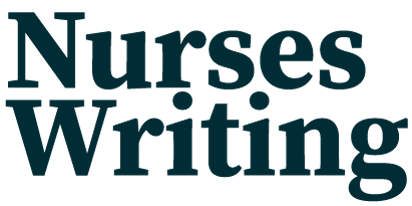Assessment 3: Nurse Educator Philosophy
NURS FPX 6103 The Nurse Educator Role Assessment 3 Nurse Educator Philosophy Statement KP
Philosophy Statement: As a nurse and a nurse educator, I want to offer personalized care to all the patients I attend in the hospital rather than only treating their condition, hold my nursing students to high expectations with the understanding that they need practical tools, resources, and instructions without partiality or favoritism to become competent nurses, and serve the community the best way I can while undertaking research to address the issues facing nurse education.
Beliefs about the Adult Learner and their Environment
Over the years, engaging the adult learner in nursing classrooms has proven a challenging task for nurse educators. As a nurse educator, I have various perceptions of adult learners in nursing classrooms. First, adult learner wants to be independent and sovereign in what they do (Mackavey & Cron, 2019). Although they understand that their role as nurses is critical to addressing health and saving lives in society, there are times when they are overcrowded by their ambitions and desire for success in their profession. This happens partly because they fail to understand that nursing is a practical subject that matters in the field rather than in the classroom. Grades might not matter if the student cannot address patient care in a realistic setting. Indeed, nursing as a discipline and practice is founded on developing practical skills and applying theoretical knowledge to practice (Miles & Scott, 2019). Moreover, the efficiency of nurses in practice is assessed on their practical application of theoretical knowledge safely and skillfully. However, while nursing is practically attuned, it is equally significant for nurses to acquire theoretical knowledge in a classroom setting.
Secondly, adult learners have many responsibilities in their lives, which might interfere with their learning to become nurses. This situation may create significant distractions for the adult learner (Mackavey & Cron, 2019). These distractions in their lives are unideal as they reduce their concentration. However, the adult learning environment must support their learning towards becoming competent nurses. I believe in various strategies that can help and enable their successful learning.
Teaching Strategies for Adult Learners in Nursing
NURS FPX 6103 The Nurse Educator Role Assessment 3 Nurse Educator Philosophy Statement KP
First, I believe in encouraging adult learners to share their previous experiences. Indeed, being an adult and learning implies that one is a late bloomer. Hence, they have gathered much experience in their lives to share with fellow learners to assist them in their learning. Sharing experiences allows nurse students to perceive life and learning from a different perspective, reducing the learning distraction from their expertise (Andersen & Watkins, 2018). Secondly, facilitating interactive learning scenarios is vital for adult learners. For instance, it is crucial to encourage the students to form discussion groups to exchange thoughts about various nursing subjects, share their problems and find solutions as a group (Andersen & Watkins, 2018). Also, using competition is a significant motivation for adult learners. In this strategy, nurse educators could give the students projects that attract rewards to compete to become effective and win. Lastly, before adult students can start practicing in hospital wards, simulations expose them to real-life situations in the nursing discipline (Rim & Shin, 2021). This strategy is essential in preparing them to handle challenges that they will experience in hospitals after they graduate and become registered and practicing nurses.
How my Philosophy Addresses the Tripartite Roles of a Nurse Educator
My philosophy as a nurse and a nurse educator will assist my practice in various ways to meet the expectation of a nurse educator, especially concerning the tripartite roles of teaching, service, and scholarship.
Teaching: the philosophy will ensure that I teach the nursing student professionally. Indeed, teaching is a profession by itself, and teachers must be professionals. My philosophy states that I will hold my students to high expectations and ensure they have practical tools, resources, and instructions. Using this statement, I will perceive my students as equal individuals who want to learn and become proficient in their discipline without discriminating against them in any way whatsoever. Hence, I will instruct them competently, using the resources necessary to prepare them to become distinguished nurses. Also, I will impart important nursing skills using the theoretical and practical skills I have learned as a nurse and a nurse educator.
Service: Being a nurse educator, I understand I must be of service to the community, providing health services and safeguarding people’s lives. Moreover, the nurse educator role gives me the responsibility to prepare students for their nursing careers. Hence, the philosophy will guide me to answering community calls, like heading health committees and other health forums that may require my intervention.
Scholarship: As a nurse educator, I am responsible for developing teaching and evaluation methods, research teaching-learning theories knowledge, role modeling, and developing teaching and learning models.
Historical Support of my Philosophy
NURS FPX 6103 The Nurse Educator Role Assessment 3 Nurse Educator Philosophy Statement KP
The academic discipline has had significant historical events that showed discrimination. If anything, before yeh civil war in the US, education was highly segregated to discriminate against the black population. Also, many institutions did not admit women into their programs. My philosophy supports equal treatment of all individuals. Hence, I will address all my students as equals in the nursing discipline without being sensitive to their ethnicities, race, or gender orientation. Indeed, I will follow the principles of Yale Nursing School of admitting women into its program, unlike other institutions back in the 20th century (Jackson & Marchi, 2020). The focus of equality in my philosophy will allow the male and female genders to showcase their potential in nursing and service to the community like Florence Wald did to start the first hospice program in the United States. The inclusion of women in nursing programs affected nurse education in that women also started becoming nurse educators. Today, nurse educators are a mixed population, where men and women have equal opportunities to pursue careers in nurse education and become professional nurse instructors.
Competencies to Support my Philosophy
Having the philosophy is not adequate to become a distinguished nurse educator. Hence, I need to have various competencies to support the philosophy and practice as a nurse educator. First, I must have effective leadership skills. Handling adult learners is challenging because they are individuals with experience in many life areas (Mikkonen et al., 2018. Hence, one must possess significant leadership skills to discern their needs as students and address them satisfactorily. Secondly, I must have considerable patience as a nurse educator. Indeed, the understanding capabilities of students will vary significantly. With the principle of non-discrimination and equality in my philosophy, I must be patient to ensure that all the students participate equally and are at the same learning level without leaving anyone behind. Lastly, I must have practical interpersonal skills (Bifftu et al., 2018). As an educator, I expect to handle students with significant diversities. However, I must understand them and their needs, which requires considerable interpersonal skills. Also, when addressing my service and scholarship expectations, I will interact with many people and identify with them.
References
Andersen, T., & Watkins, K. (2018). The importance of mentorship in nursing. Journal of Nursing Education, 57(4), 217-224.
Jackson, M., & Marchi, N. (2020). Graduate-entry education for nonnurses: Preparation, pathways, and progress. Nursing education perspectives, 41(1), 30-32. https://journals.lww.com/neponline/Fulltext/2020/01000/Graduate_Entry_Education_for_Nonnurses_.8.aspx
Bifftu, B. B., Dachew, B. A., Tiruneh, B. T., Ashenafie, T. D., Tegegne, E. T., & Worku, W. Z. (2018). Effective clinical education behaviors :. Journal of caring sciences, 7(3), 119. https://www.ncbi.nlm.nih.gov/pmc/articles/pmc6163158/
NURS FPX 6103 The Nurse Educator Role Assessment 3 Nurse Educator Philosophy Statement KP
Mackavey, C., & Cron, S. (2019). Innovative strategies: Improve engagement in online advanced practice nursing education. Nurse education , 76, 85-88. https://www.sciencedirect.com/science/article/pii/S0260691718306725
Mikkonen, K., Ojala, T., Sjögren, T., Piirainen, A., Koskinen, C., Koskinen, M., … & Kääriäinen, M. (2018). Competence areas of health science teachers–a systematic review of quantitative studies. Nurse education today, 70, 77-86. https://www.sciencedirect.com/science/article/pii/S0260691718304192
Miles, J. M., & Scott, E. S. (2019). A new leadership development model for nursing education. 35(1), 5-11. https://www.sciencedirect.com/science/article/pii/S8755722318301534Rim, D., & Shin, H. (2021). Effective instructional design template for virtual simulations in nursing education. Nurse Education Today, 96, 104624. https://www.sciencedirect.com/science/article/pii/S026069172031474X

